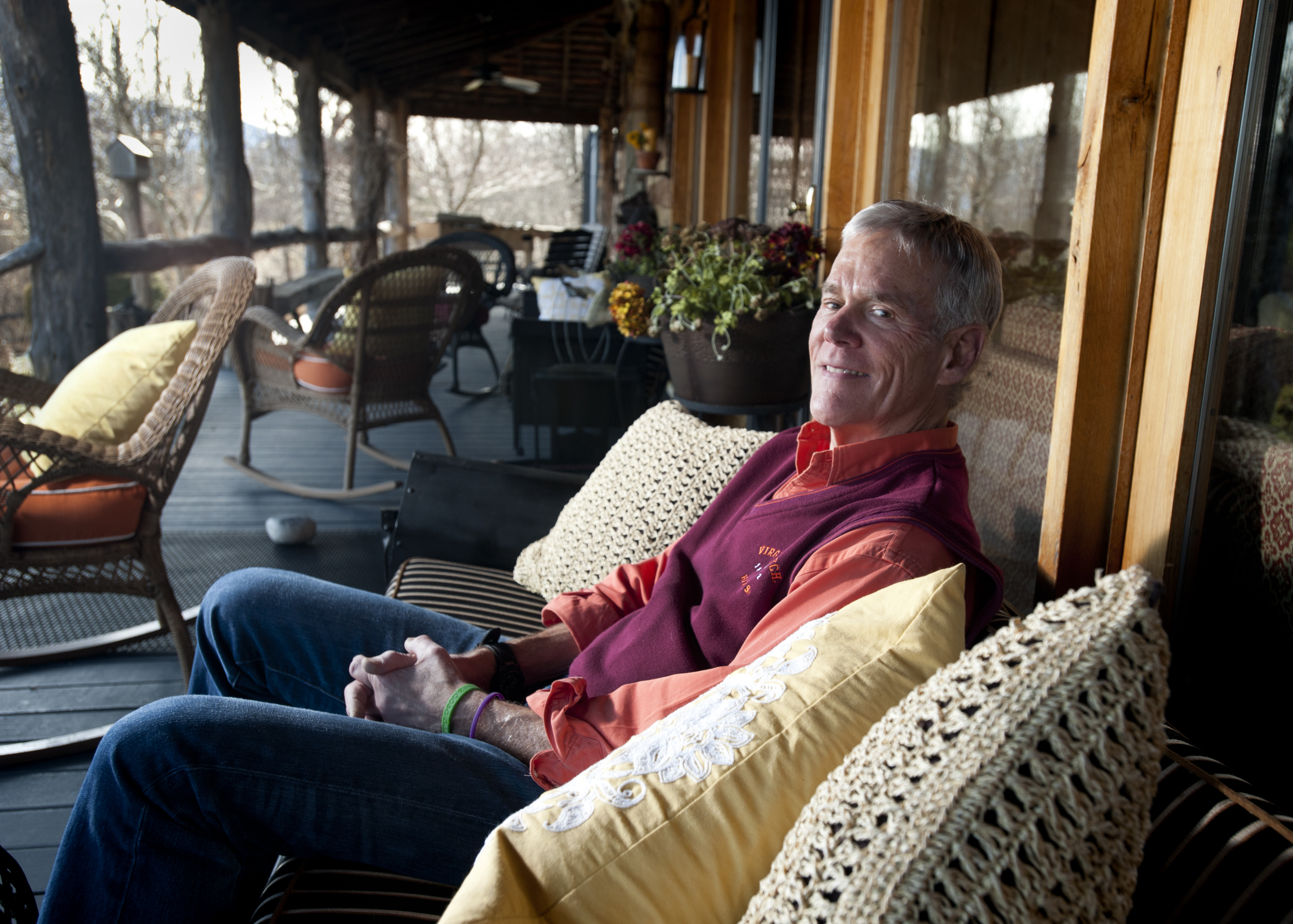Alumni Distinguished Professor E. Scott Geller still actively working to make the world more caring

E. Scott Geller is a nationally recognized leader in the field of applied behavioral science.
He’s a dynamic, sought-after speaker whose TEDx Virginia Tech talk has attracted nearly 870,000 views on YouTube.
And he’s a prolific author who’s written dozens of books and hundreds of magazine and research articles since joining Virginia Tech’s psychology department 45 years ago.
But Geller’s greatest attribute, current and former students say, is his willingness and ability to positively shape scores of lives through his courses and his leadership at Virginia Tech’s Center for Applied Behavior Systems.
The Virginia Tech Board of Visitors recently reappointed Geller to his second 10-year term as an Alumni Distinguished Professor, a designation granted to less than 1 percent of faculty to recognize individuals who have made outstanding contributions to the instructional program of the university and who have touched the lives of generations of alumni.
Geller founded the Center for Applied Behavior Systems in 1987 to provide hands-on research experience for graduate and undergraduate students and to research topics that could lead to an improved quality of life on a large scale.
“We are totally problem-focused,” Geller said. The center’s current research includes projects focused on college alcohol consumption, bullying prevention, bicycle/pedestrian safety, environmental sustainability, and credit card safety.
Ryan C. Smith was a freshman in 2003 when he started working at the research center. The professor’s influence on him was both immediate and long-lasting, he said.
“Dr. Geller taught me that community service and research can and should be the same thing. It is imperative that the work we do make a lasting positive impact on those around us. Yet our aspirations for making a difference must also be grounded in research and science," Smith said. "This simple principle shaped my thinking when I started working with him and continues to guide my work as a researcher.”
Smith, now a research associate with the Virginia Tech Transportation Institute, earned both Undergraduate Man of the Year (2008) and Graduate Man of the Year (2013) honors and said neither would have been possible without Geller’s mentorship.
“It is impossible to put into words the positive and profound impact he has had on my life,” said Smith, who remains involved with research in the Center for Applied Behavior Systems.
Every semester, two current or former students coordinate the research center activities, which includes a 90-minute class every Tuesday evening for 40 to 90 students.
Zechariah Robinson of Bristol, Virginia, a senior majoring in psychology, and Melissa Langerman of Fairfax, Virginia, a 2014 graduate with bachelor's degrees in psychology and human development, are the coordinators this semester. Both affectionately refer to Geller as “Doc” when talking about him.
“Doc brings out the best of those around him, not for his own sake, but for theirs,” Robinson said. “He has truly been an inspiration to thousands.”
In the past academic year, the research center has 121 professional presentations to its credit, the majority of which were given by Virginia Tech students, according to the Board of Visitors resolution reappointing Geller.
The board resolution also notes every co-author of a book, book chapter, or research article listed on Geller’s vita in the past 10 years is a former or current Virginia Tech student and that he has advised and mentored 10 master of science students and 11 doctoral students in psychology over the past decade.
Robinson and Langerman said Geller’s passion and commitment to making a difference in the world is epitomized by the Actively Caring for People movement he inspired.
Geller originally used the term "actively caring" to encourage workplace safety in industrial settings but the words took on new significance at Virginia Tech after April 16, 2007. Actively Caring For People (AC4P), a movement seeking to establish a compassionate culture inspiring intentional acts of kindness, was founded by a group of students under Geller’s direction.
The movement, known for the green silicon wristbands that are passed from person to person during acts of kindness, has spread to other universities and K-12 schools.
Geller’s been called a “dream chaser” for his Pollyannaish outlook -- but it’s a title the professor embraces.
He’s still motivated by the same mission as when he started in Virginia Tech’s psychology department in 1969: Use his teaching and research to create a more caring society that results in a better quality of life on a large scale.
“We want to change the world,” he states very simply before reiterating that such aspirations must be grounded in research.
Geller, who still chooses to teach part of an introduction to psychology class every semester, earned doctoral and master’s degrees from Southern Illinois University and a bachelor's degree from the College of Wooster.
Geller’s awards in the past decade include: Outstanding Faculty Award from the State Council of Higher Education for Virginia (2005); Faculty Appreciation Day Students’ Choice Award for Outstanding Faculty Leadership (2005, 2006, 2007); the Lifetime Achievement Award from the Organizational Behavior Management Network of the Association for Behavior Analysis International (2007); the American Psychological Foundation Gold Medal Award for Lifetime Achievement in Psychology in the Public Interest (2009); the Outstanding Applied Research Award from the American Psychological Association, Division 25 (2010); and the Mentorship Award from the Association for Behavioral Analysis International (2013).
Smith, Geller’s former student who continues to work as research scientist in the Center for Applied Behavior Systems, applauded the board’s decision to reappoint Geller as an Alumni Distinguished Professor.
“He has a contagious vision for harnessing the power of research to improve other's quality of life,” Smith said of Geller.
Story written by Michael Stowe.








